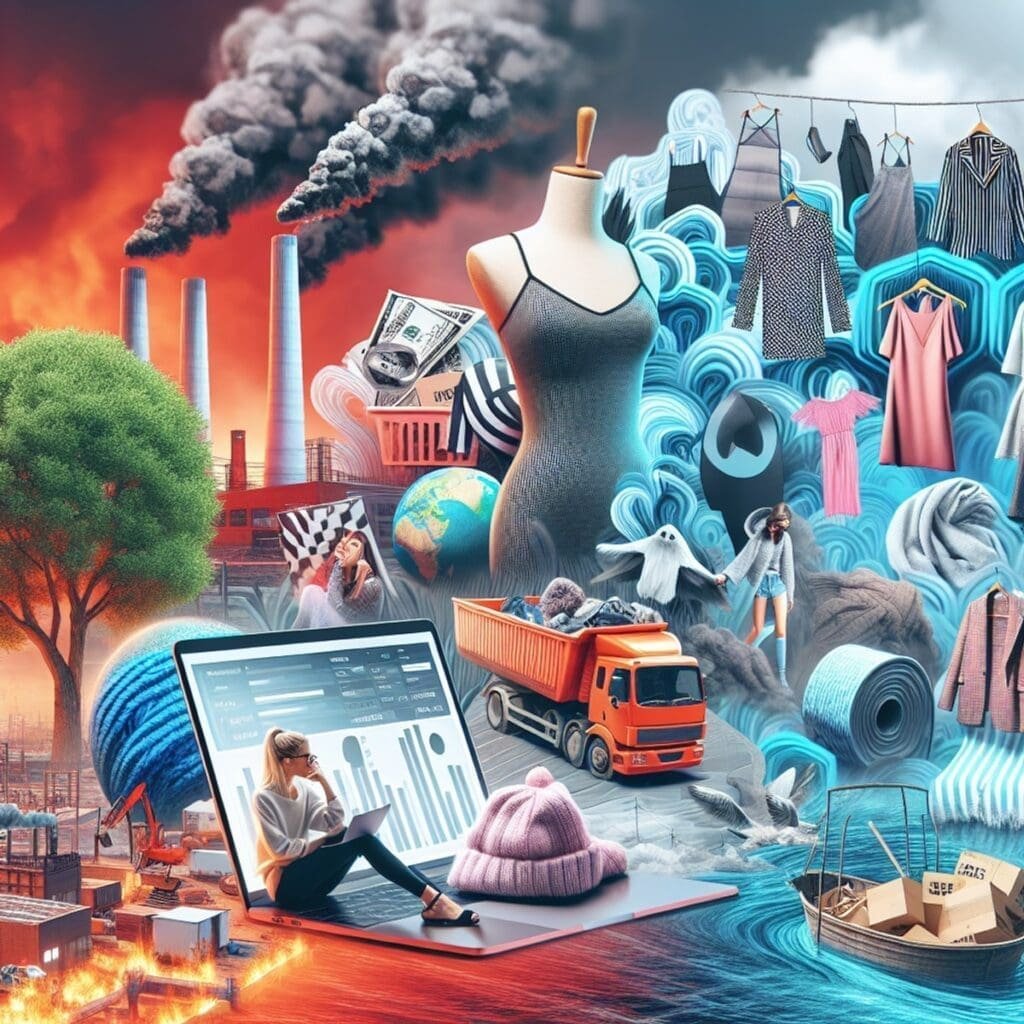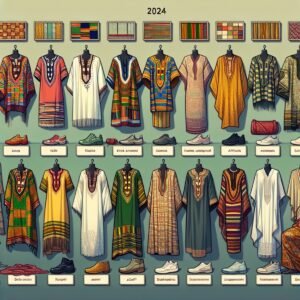
Introduction Why Is Shein So Bad
Shein, the popular fast fashion brand, has gained significant attention in recent years. However, behind its seemingly trendy and affordable clothing lies a trail of controversies. The fashion industry as a whole plays a crucial role in both sustainability and labor rights issues. In this article, we will delve into the shocking truth behind Shein’s negative reputation.
1. Unethical Business Practices
The allegations of modern slavery and exploitative labor practices against Shein have raised significant concerns about the brand’s ethical standards and treatment of workers. Reports and investigations have suggested that Shein may be involved in poor working conditions and the violation of labor laws, contributing to its negative reputation in the fashion industry.
- Shein has faced accusations of modern slavery, with evidence pointing towards severe overwork and underpayment of employees.
- The company’s involvement in exploitative labor practices has been a subject of scrutiny, shedding light on potential violations of labor laws and inadequate working conditions for factory workers.
2. Plagiarism, Copying Small Businesses, and Design Theft
The fashion industry relies heavily on creativity and originality. Designers spend countless hours developing unique designs that reflect their vision and artistic expression. However, Shein has been involved in controversy over allegations of plagiarism, copying small businesses, and design theft. Let’s explore this issue:
Plagiarism of Designs
Shein has faced numerous accusations of copying designs from independent designers and smaller brands without giving proper credit or compensation. This practice not only undermines the hard work and creativity of these designers but also raises ethical concerns about the company’s integrity and authenticity.
Copying Small Businesses
In addition to plagiarizing individual designs, Shein has been accused of copying entire collections from small businesses. This predatory behavior can have devastating consequences for these businesses, as they often lack the resources to take legal action against a corporate giant like Shein. It creates an unfair playing field where established brands can profit off the ideas and hard work of smaller, less-known designers.
Design Theft
Shein has been known to replicate popular designs from well-known fashion houses at a fraction of the price. While this may seem tempting for budget-conscious shoppers, it perpetuates a culture of fast fashion consumption that devalues originality and craftsmanship. It also raises questions about the legality of these practices and whether Shein is infringing on intellectual property rights.
The impact of Shein’s alleged plagiarism, copying small businesses, and design theft goes beyond economic implications. It erodes trust within the fashion industry and discourages innovation and creativity. Independent designers and small businesses are vital contributors to the industry’s diversity and vitality, and their work should be respected and protected.
As consumers, we play a crucial role in supporting originality and ethical practices in the fashion industry. By being mindful of the brands we choose to support, we can help create a more sustainable and fair fashion landscape.
3. Environmental Impact and Lack of Sustainability Efforts

Shein’s fast fashion model has received criticism for its significant environmental impact and lack of sustainability efforts. Here are some key points to consider:
Textile Waste
The fast fashion industry, including Shein, contributes to the growing problem of textile waste. With its low prices and quick turnover of trendy items, Shein encourages a culture of disposable fashion. Many consumers purchase cheap clothes from Shein, wear them a few times, and then discard them. This leads to a staggering amount of clothing ending up in landfills, where they can take years to decompose.
Carbon Emissions
The production and transportation processes involved in fast fashion result in substantial carbon emissions. Shein’s global supply chain involves manufacturing facilities in different countries and shipping products worldwide. The carbon footprint generated by these operations is significant and contributes to climate change.
Lack of Sustainable Materials
Shein has been criticized for using synthetic materials, such as polyester, which have a high environmental impact. Polyester production requires large amounts of energy and water while releasing harmful emissions into the environment. Additionally, these materials do not biodegrade easily, further contributing to the issue of textile waste.
Limited Transparency on Sustainability Efforts
Shein has been vague about its sustainability initiatives and lacks transparency regarding its efforts to reduce its environmental impact. While the company claims to be committed to sustainability, there is little concrete information available about specific actions taken or goals set to address their environmental footprint.
To address these concerns, it is essential for brands like Shein to adopt more sustainable practices. This includes:
- Investing in eco-friendly materials like organic cotton or recycled fabrics.
- Implementing recycling programs or take-back initiatives to reduce textile waste.
- Emphasizing transparency by sharing information on their supply chain and environmental practices.
- Supporting fair labor practices throughout their supply chain.
It is crucial for consumers to be aware of the environmental impact of their fashion choices and consider supporting brands that prioritize sustainability. By making conscious purchasing decisions, we can contribute to a more sustainable fashion industry and encourage companies like Shein to improve their practices.
4. Lack of Supply Chain Transparency and Social Responsibility

Examining Shein’s transparency practices, particularly in relation to its supply chain management, is crucial in understanding the brand’s social responsibility as a major player in the fashion industry. The lack of clarity regarding the origin of materials and the production process raises concerns about ethical sourcing and labor conditions within Shein’s supply chain.
The absence of detailed information about the factories and facilities involved in manufacturing Shein’s products contributes to a lack of accountability for labor practices and environmental impact. Without transparency, consumers are unable to assess the working conditions of the individuals involved in the production of Shein’s clothing items, making it difficult to support the brand ethically.
Furthermore, social responsibility entails being open and honest about the impact of business operations on communities, workers, and the environment. By withholding information about its supply chain and production methods, Shein fails to demonstrate a commitment to social responsibility and transparency.
In contrast, brands that prioritize supply chain transparency and social responsibility provide consumers with visibility into their ethical practices, empowering individuals to make informed decisions about their purchases. For instance, companies like Walmart have made significant strides in product supply chain sustainability, setting an example for others.
As consumers increasingly value transparency and ethical standards in fashion, Shein’s lack of supply chain transparency becomes a significant point of concern for those seeking sustainable and ethical alternatives. It is essential for companies to understand that supply chain transparency goes beyond mere disclosure. It is about actively engaging in responsible practices and being held accountable for the impact they have on both people and the planet.
5. Controversial Incidents: From Offensive Garments to Problematic Marketing Strategies
In addition to its unethical business practices and lack of supply chain transparency, Shein has also faced significant backlash for its involvement in various controversial incidents. These incidents have further contributed to the negative reputation of the brand. Let’s take a closer look at some of these instances:
- Offensive Garments: Shein has come under fire for selling products featuring offensive symbols or designs that perpetuate harmful stereotypes or cultural appropriation. One notable incident involved a necklace that resembled a swastika, a symbol associated with hate and genocide. The item was listed for sale on Shein’s website, sparking outrage among consumers and advocacy groups.
- Problematic Marketing Strategies: Shein has been criticized for promoting harmful body standards through its marketing campaigns. The brand has been accused of using heavily photoshopped images that promote unrealistic beauty ideals and contribute to body shaming. In one instance, Shein faced backlash for advertising a plus-size model with significantly altered proportions, sending a damaging message about body image.
- Insensitive Product Descriptions: Shein has been called out for using insensitive and inappropriate product descriptions. In some cases, the brand used derogatory language or made offensive references in their item descriptions, showing a lack of cultural sensitivity and respect.
These controversial incidents highlight the need for greater accountability and responsible practices within the fashion industry. It is essential for brands like Shein to prioritize diversity, inclusivity, and cultural sensitivity in their product offerings and marketing strategies by understanding what is cultural sensitivity in advertising and how it can be applied effectively in order to avoid such controversies in the future.
As consumers become more aware of these issues, they are demanding change and seeking alternative brands that align with their values. This growing demand reinforces the urgency for the fashion industry to shift towards sustainable and ethical practices, including market-brand cultures that are more culturally sensitive and respectful to diverse communities.
The Need for a Shift Towards Sustainable and Ethical Fashion
As we become more aware of the harmful effects of fast fashion, there is a greater demand for sustainable and ethical options. People now want to support brands that are committed to doing the right thing – whether it’s protecting the environment or ensuring fair treatment of workers.
The Fashion Transparency Index: A Tool for Change
To help consumers navigate this complex industry, the Fashion Transparency Index has emerged as a valuable resource. It allows individuals to assess brands based on their:
- Commitment to labor rights
- Supply chain transparency
- Sustainability practices
With this information at hand, shoppers can make more informed choices about which companies they want to support.
The Rise of Conscientious Consumption
The growing demand for sustainable and ethical fashion is part of a larger movement towards conscientious consumption. As people learn about the negative impact of the fashion industry on our planet and communities, they are becoming more conscious of their purchasing decisions.
This shift in mindset is driven by a desire to:
- Reduce our carbon footprint
- Minimize waste
- Support fair wages and safe working conditions
The Benefits of Sustainable and Ethical Fashion
Making the switch to sustainable and ethical fashion has several advantages:
- Environmental conservation: By choosing brands that prioritize eco-friendly materials and production methods, we can help reduce pollution, conserve resources, and protect natural habitats.
- Social responsibility: Supporting companies that uphold fair labor practices ensures that garment workers are treated ethically and paid fairly for their work.
- Longevity: Sustainable fashion promotes timeless designs and high-quality craftsmanship, resulting in garments that are made to last.
- Innovation: Embracing sustainability encourages creative solutions such as upcycling, recycling, and using innovative fabrics – driving industry-wide innovation.
The Role of Brands in Driving Change
The shift towards sustainable and ethical fashion presents an opportunity for brands to demonstrate their commitment to positive change. By embracing these values, companies can not only meet consumer expectations but also contribute to a more sustainable and fair future for the fashion industry.
It’s time for the fashion industry to prioritize both style and responsibility – and it starts with all of us making conscious choices.
Conclusion
It’s time to rethink our shopping habits and choose brands that prioritize both style and sustainability. By supporting ethical and sustainable fashion, we can contribute to positive change in the industry.
Holding Shein and similar companies accountable for their actions is crucial. Only through collective efforts can we push for transparency, fair labor practices, and environmental responsibility in the fast fashion conglomerate.
The impact of fast fashion on labor rights and the environment cannot be ignored. It’s time to demand better from the fashion industry and make informed choices as consumers.
FAQs (Frequently Asked Questions)
What are the allegations of modern slavery and exploitative labor practices against Shein?
The article explores the allegations of modern slavery and exploitative labor practices against Shein, examining evidence that suggests their involvement in poor working conditions and violation of labor laws.
What controversy surrounds Shein’s alleged plagiarism of designs from independent designers and smaller brands?
The article discusses the controversy surrounding Shein’s alleged plagiarism of designs from independent designers and smaller brands, addressing concerns about design theft and copying small businesses.
How does Shein contribute to environmental degradation through its fast fashion model?
The article addresses concerns about Shein’s contribution to textile waste, carbon emissions, and overall environmental degradation through its fast fashion model, highlighting the lack of sustainability efforts.
What is being examined in relation to Shein’s supply chain transparency and social responsibility practices?
The article examines Shein’s transparency practices, particularly in relation to its supply chain management, and emphasizes the importance of taking social responsibility as a major player in the fashion industry.
What controversial incidents has Shein faced backlash for?
The article investigates various instances where Shein has faced backlash for selling products featuring offensive symbols or promoting harmful body standards, discussing problematic marketing strategies and offensive garments.
What is the growing demand highlighted in the article regarding sustainable and ethical fashion alternatives?
The article highlights the growing demand for sustainable and ethical alternatives to fast fashion brands like Shein, mentioning the Fashion Transparency Index as a tool for consumers to evaluate brands’ commitment to labor rights and transparency practices.






